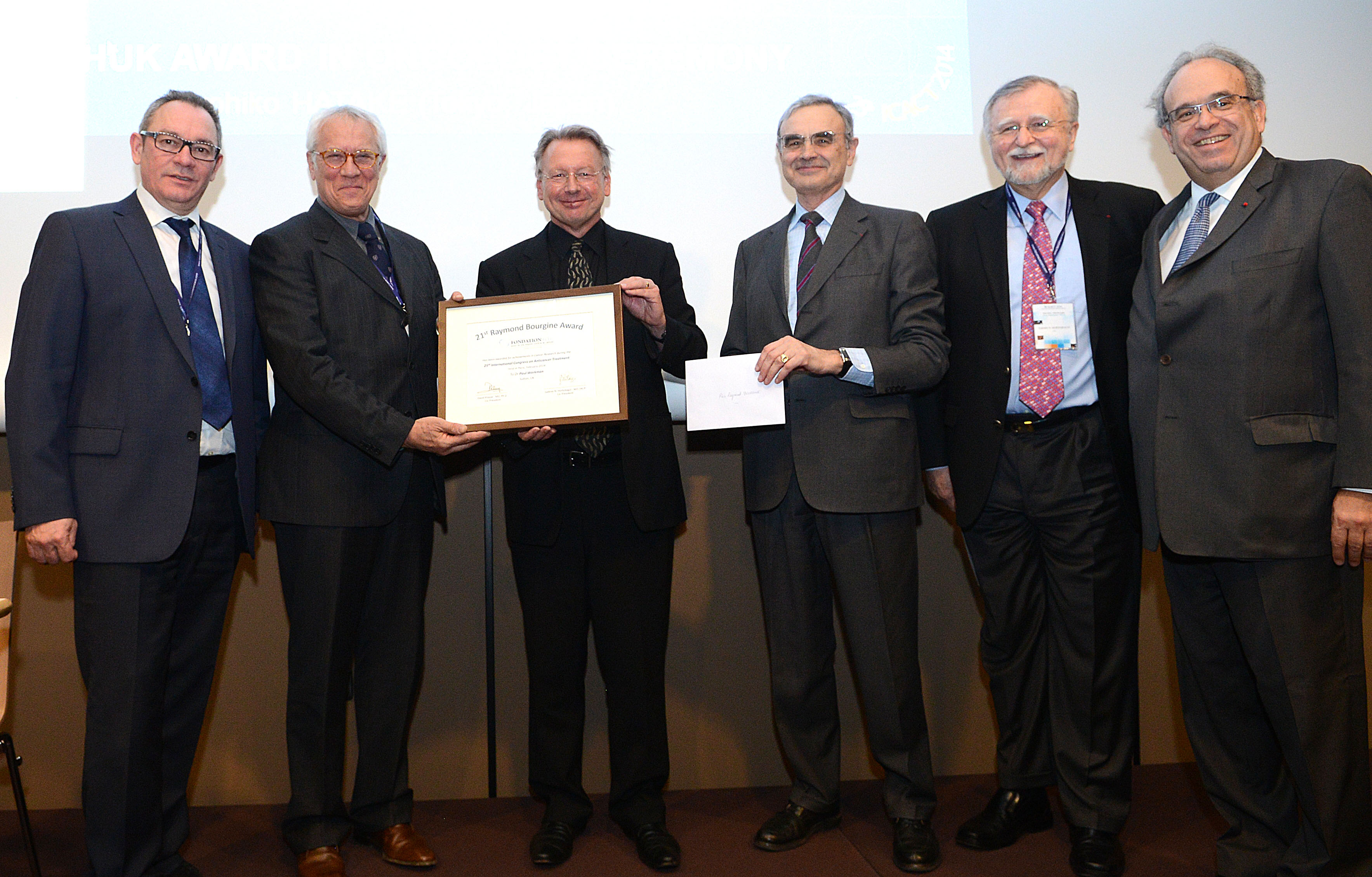
Professor Paul Workman, Deputy Chief Executive of The Institute of Cancer Research, London, has been honoured with the international Raymond Bourgine Award for excellence in cancer research.
The prestigious award, announced today at the 25th International Congress on Anti-Cancer Treatment (ICACT) in Paris, recognises Professor Workman’s exceptional contributions in the field of oncology.
Raymond Bourgine was a French journalist, author and politician who died of cancer in 1990. The award that bears his name has been won by many leading figures in cancer research, including Dr Carlo Croce, Dr Richard Klausner, Sir Richard Peto, Dr Robert Weinberg and Dr Harald Zur Hauzen.
Professor Workman, who is Director of the Cancer Research UK Cancer Therapeutics Unit at the ICR, receives the Raymond Bourgine Award for his important contributions to research, clinical practice and improving cancer treatment.
Professor Workman is a pioneer in the discovery of innovative, small-molecule targeted therapies for the personalised treatment of cancer. Under his leadership, the Cancer Research UK Cancer Therapeutics Unit at the ICR has discovered 17 innovative drug candidates since 2005, and taken seven of these drugs into clinical trials.
Professor Workman is especially renowned for his research into the discovery and molecular pharmacology of drugs acting on the molecular chaperone Hsp90 and on PI3 kinase signalling enzymes. In both cases he carried out his groundbreaking research to discover these innovative targeted agents when there was considerable scepticism about their likely success. His vision and commitment have now been vindicated and the drugs he and his team have discovered are showing great promise in clinical trials, with many pharmaceutical companies following the lead. Professor Workman is also the originator of the widely used Pharmacological Audit Trail, which stresses use of biomarkers for rational decision making during clinical drug development.
Professor Workman will be giving a lecture at the award ceremony titled ‘Drugging the cancer genome’. He will be discussing his latest results on exploiting the genetic and epigenetic differences between cancer cells and their healthy counterparts in the discovery of new targeted therapeutics.
Professor Workman will highlight the internationally renowned model that he established at ICR for driving successful drug discovery in an academic setting. He will also describe the multidisciplinary approaches that will be essential in the future to tackle the challenge of tumour heterogeneity, cancer evolution and resistance to drug treatments.
On receiving the Raymond Bourgine Award, Professor Workman said: “I am really honoured and delighted to be given this important award which has previously been won by many outstanding researchers in the field of oncology. It provides important recognition for our drug discovery and molecular pharmacology research – for which I must give credit to many talented lab members, colleagues and collaborators who have worked with me over many years. This award motivates me to work even harder to discover new treatments for cancer patients.
“In the last few years we have seen many exciting breakthrough drugs for the treatment of cancer but so far we have only scratched the surface of cancer genome targets. As personalised medicine based on genome sequencing of patients’ cancers now becomes reality, developing drugs that act on additional cancer genome targets will be essential to overcome the problem of drug resistance in the cancer clinic.”
